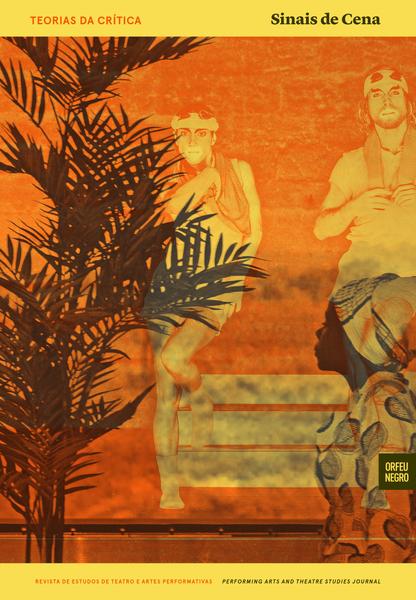Playfulness an (Un)-performability in Gertrude Stein's Modernist Drama
DOI:
https://doi.org/10.51427/cet.sdc.2018.0013Palavras-chave:
Gertrude Stein, Modernismo, Performatividade, Representação teatral, Estética da paisagemResumo
Pode-se estudar o teatro de Gertrude Stein, um teatro do modernismo, como um exemplo de dramaturgia experimental, na medida em que se encontra suspenso entre duas identidades: a do discurso e a de uma partitura teatral. Este artigo, que busca examinar a escrita dramática de Stein como um exemplo de escrita modernista, destaca os desafios que fazem dela uma escritora essencialmente "anti-teatral" - uma escritora que tem muito pouco interesse na encenação. Embora ela se dedique fortemente a jogos de palavras, repetições e construções linguísticas que substituem conflitos dramáticos, ação e personagens, o teatro de Stein evoluiu para uma maturidade de representação, que se manifesta principalmente na compreensão clara e límpida do espaço e do tempo através do controle da linguagem, bem como na sua concentração na experiência do presente pelo público, que não é mais distraído pela causalidade linear. Mesmo que a época de Stein tenha oferecido muitas oportunidades para experimentar com o material e a forma de seu meio, sua voz permaneceu essencialmente uma questão privada, e suas representações teatrais foram, em grande parte, exercícios lúdicos em vez de desafios à realização cênica. No entanto, seus rearranjos textuais de identidades, espaços e coisas, que são objeto de divisões e adaptações contínuas, deram origem a uma tradição estética bastante singular, que deixou marcas visíveis em muitas representações formalistas modernas.
Downloads
Downloads
Publicado
Como Citar
Edição
Secção
Licença
Direitos de Autor (c) 2018 Avra Sidiropoulou

Este trabalho encontra-se publicado com a Licença Internacional Creative Commons Atribuição-NãoComercial-SemDerivações 4.0.
Autores que publiquem os seus textos na Sinais de Cena publicam as suas contribuições sob a licença Creative Commons Atribuição - Não Comercial -Sem Derivações 4.0 Internacional (CC BY-NC-ND 4.0): “Os utilizadores dos conteúdos podem compartilhar, copiar e redistribuir o material em qualquer suporte ou formato, segundo os seguintes termos: 1) Deve atribuir o devido crédito, fornecer um link para a licença, e indicar se foram feitas alterações. Pode fazê-lo de qualquer forma razoável, mas não de uma forma que sugira que o licenciante o apoia ou aprova o seu uso. 2) Não pode usar o material para fins comerciais. 3) Colagens, modificações ou criações a partir dos conteúdos publicados não podem ser distribuídos".











